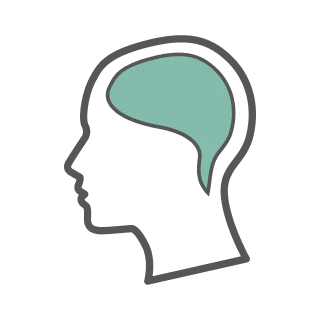RESEARCH STUDY
Learn about a trial evaluating a new transcranial photobiomodulation (tPBM) device in individuals with Mild Cognitive Impairment (MCI) and early-stage dementia due to Alzheimer’s Disease.
Quietmind Research Line Number:
(267) 481-3987
Brief Description of the Research Study


A Study from Home
Fully Remote

Lighting the path for answers.
Tracking Progress
Timeline

How to determine your eligibility
The research team will review further eligibility criteria with you or your caregiver/family member.
Your safety is our highest priority. Should you have queries or apprehensions at any stage of the trial, a member of our study team will be available to assist.
Choosing to participate in the Neuronic Study is entirely up to you. If you decide to participate in this research study, you are always free to withdraw at any time, for any reason, without any penalty or effect on your care.
Talk to your doctor if you have any questions about your health conditions and recommendations to participate in this clinical trial.
Participation Requirements
You may be eligible to participate if you:
- Are 50-80 years of age.
- Located in the United States.
- Have been diagnosed with mild cognitive impairment (MCI) or early dementia due to Alzheimer’s disease by a neurologist.
- Have a computer AND smartphone with internet connection.
- Have a caregiver (or spouse/family member) willing to help the participant to follow the study protocol.
- Able and willing to drive for up to 20 miles to obtain 2 EEG tests (one test at the beginning and end of the study).
Frequently Asked Questions
In the early stages of Alzheimer's disease, it's common for individuals to experience mild cognitive impairment (MCI) or mild dementia. During this phase, while there may be memory lapses or other cognitive challenges, most individuals can still manage most daily tasks independently. ¹Often, the individual might feel they're becoming forgetful, and their family or close friends might observe behavioral changes. ² A doctor can pinpoint these symptoms using various diagnostic tools and questionnaires. 3Some typical difficulties faced during mild cognitive impairment and mild dementia include²:Struggling to recall the right word or name.Forgetting recent readingsNot remembering names of new acquaintancesEncountering challenges while handling specific tasks at work or in social situationsMisplacing or losing valuable itemsFacing increased troubles in organizing and planning.
References:
1. Mild cognitive impairment. Alzheimer’s Association. Accessed August 16, 2023. https://www.alz.org/alzheimers-dementia/what-is-dementia/related_conditions/mild-cognitive-impairment
2. Stages of Alzheimer’s/Alzheimer’s and dementia. Alzheimer’s Association. Accessed August 16, 2023. https://www.alz.org/alzheimers-dementia/stages
3. How is Alzheimer's disease diagnosed? U.S. Department of Health and Human Services. National Institute on Aging. https://www.nia.nih.gov/health/how-alzheimers-disease-diagnosed
The Neuronic Study is evaluating the effects of the new Neuradiant Pro device on individuals with mild cognitive impairment or mild dementia due to Alzheimer’s disease.
The study lasts between 16 to 18 weeks. We will deliver the Neuradiant Pro device to your home and provide instructions for use. The study can conveniently be done at home with periodic online check-ins. You will only be required to physically attend to a nearby clinic twice to obtain an electroencephalogram (EEG) test.
(1040 nm vs 1070 nm PBM) of the study will start in October 2023.
An electroencephalogram (EEG) test is a simple and painless procedure used to measure the electrical activity in your brain. During the test, small sensors are attached to your scalp using a special gel or adhesive. These sensors pick up the brain's electrical signals and display them on a computer. You'll typically sit during the procedure, and you might be asked to do certain tasks or relax. It's a safe way to understand how your brain is working.
Transcranial photobiomodulation (tPBM) is a non-invasive light therapy that uses low-power red or near-infrared (NIR) light to stimulate the brain. Research[1][2][3] has shown that tPBM works by stimulating neuron function, which increases the metabolic capacity of neurons and induces anti-inflammatory and antioxidant responses. It also improves cerebral oxygenation, promotes neuroplasticity, and modulates inflammation.
[1] Dole M, Auboiroux V, Langar L, Mitrofanis J. A systematic review of the effects of transcranial photobiomodulation on brain activity in humans. Rev Neurosci. 2023 Mar 17;34(6):671-693. doi: 10.1515/revneuro-2023-0003. PMID: 36927734.2. Hipskind, S. G., Grover, F. L., Jr, Fort, T. R., Helffenstein, D., Burke, T. J., Quint, S. A., Bussiere, G., Stone, M., & Hurtado, T. (2018). Pulsed Transcranial Red/Near-Infrared Light Therapy Using Light-Emitting Diodes Improves Cerebral Blood Flow and Cognitive Function in Veterans with Chronic Traumatic Brain Injury: A Case Series. *Photomedicine and laser surgery*, 10.1089/pho.2018.4489. Advance online publication. https://doi.org/10.1089/pho.2018.44891. Dole M, Auboiroux V, Langar L, Mitrofanis J. A systematic review of the effects of transcranial photobiomodulation on brain activity in humans. Rev Neurosci. 2023 Mar 17;34(6):671-693. doi: 10.1515/revneuro-2023-0003. PMID: 36927734. pubmed.ncbi.nlm.nih.gov/36927734/
[2] 2. Hipskind, S. G., Grover, F. L., Jr, Fort, T. R., Helffenstein, D., Burke, T. J., Quint, S. A., Bussiere, G., Stone, M., & Hurtado, T. (2018). Pulsed Transcranial Red/Near-Infrared Light Therapy Using Light-Emitting Diodes Improves Cerebral Blood Flow and Cognitive Function in Veterans with Chronic Traumatic Brain Injury: A Case Series. *Photomedicine and laser surgery*, 10.1089/pho.2018.4489. Advance online publication. https://doi.org/10.1089/pho.2018.4489 pubmed.ncbi.nlm.nih.gov/30418082/
[3] Lin H, Li D, Zhu J, Liu S, Li J, Yu T, Tuchin VV, Semyachkina-Glushkovskaya O, Zhu D. Transcranial photobiomodulation for brain diseases: review of animal and human studies including mechanisms and emerging trends. Neurophotonics. 2024 Jan;11(1):010601. doi: 10.1117/1.NPh.11.1.010601. Epub 2024 Feb 5. PMID: 38317779; PMCID: PMC10840571
You could experience side effects associated with the active tPBM device. Your symptoms may not improve or may get worse during the study. The study team will discuss all the possible risks in detail with you.
Some participants might experience signs of overstimulation like dizziness, headaches, or fatigue. These symptoms are generally mild and resolve within hours. It's important to stay hydrated and have eaten prior to using the device.
Continue taking your medications as prescribed. However, always communicate with your physician throughout the study period.
Your privacy is paramount. All personal and medical data is kept confidential and will be anonymized. The data will only be accessible to authorized personnel, as outlined in the informed consent process.
Neuronic Devices Operations GmBH is sponsoring the study.
All study-related procedures and the Neuradiant Pro device will be provided at no cost. You are required to return the devices after completing your consultation sessions, or if withdrawn/terminated.
Your participation is entirely voluntary, and you can withdraw at any time. If you choose to leave the study before its completion, the device must be returned to Neuronic within 2 weeks.
Yes! As a token of our gratitude, you will receive a $75 gift card from Neuronic upon successful completion of the study.
